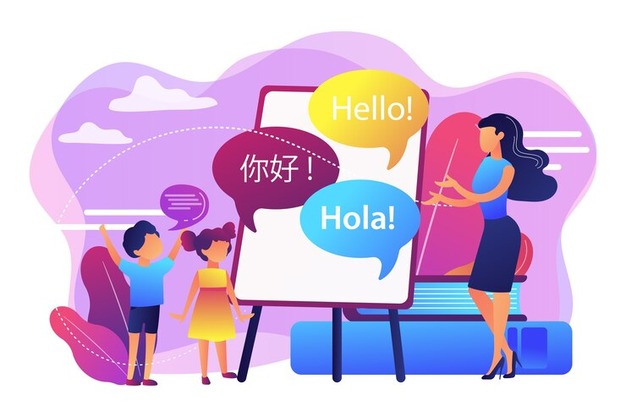Here's how knowing a second language can improve your future prospects
Listen to this Article

Learning a second language can open many doors for you in the future. Here are some ways it can help. In an ever-globalizing world, the ability to communicate in more than one language has become more than just a useful skill—it's a powerful tool that can unlock numerous opportunities and enrich your life in ways you might not have imagined. Learning a second language can seem daunting for school students, but its benefits can significantly impact your prospects. Mastering another language can pave the way for a brighter future. Here's all you need to know from the expert Neelima Kamrah, Principal of KIIT World School Gurugram.
ACADEMIC ADVANTAGES
Learning a second language has been shown to enhance cognitive abilities, translating to better academic performance overall. Studies indicate that bilingual students often outperform monolingual peers in maths, reading, and science subjects. This cognitive boost comes from the brain's need to manage multiple linguistic systems and enhance memory, problem-solving skills, and critical thinking. Additionally, standardised tests such as the SAT and ACT often see higher scores from students studying a foreign language. By investing time in language learning, you're not just gaining a new skill but also improving your overall intellectual capacity.
CAREER OPPORTUNITIES
Being multilingual is a highly valued ability in the working world. Candidates who can converse in their native languages with clients and business partners are preferred by multinational corporations. Improved relationships, increased career chances, and the possibility of higher wages are all facilitated by this talent. Language proficiency is essential in a variety of fields, including translation, international business, foreign policy, and tourism. Consider taking on the role of the primary translator on an official trip or the main communicator in a high-stakes corporate discussion. Your ability to communicate in English may be the difference between getting the job of your dreams and not.
CULTURAL ENRICHMENT AND PERSONAL GROWTH
Gaining a passion for and knowledge of many cultures can also be facilitated by learning a second language. This cultural knowledge fosters sympathy and global citizenship, and these are attributes that are becoming more and more crucial in our interconnected society. Speaking a second language allows you to better understand the customs, backgrounds, and viewpoints of those who speak it. Your connections will improve, and you will become a more well-rounded person due to this cultural fluency. Because you can communicate with locals more deeply and truthfully, it can enhance and improve your trip experiences.
COGNITIVE AND SOCIAL BENEFITS
Beyond education and employment, multilingualism has other positive social and cognitive effects. Better executive functioning, including multitasking and task prioritisation, is frequently seen in bilingual people. You can adjust to new situations and problems more skillfully if you have this mental flexibility. Speaking a second language lets you interact with a greater variety of people on a social level. Your capacity to communicate across language boundaries can enhance social interactions and promote deeper connections, whether you're forming new friendships, understanding different viewpoints, or engaging in diverse communities.
PREPARING FOR A GLOBALIZED WORLD
In the modern international economy, it is essential to recognise and value diversity. An increasingly important skill in the globalised world is the capacity to understand and bridge cultural differences. Learning a second language enables you to present yourself as an international citizen, prepared to interact with individuals from many backgrounds. Being ready can help you stand out while applying to colleges, for scholarships, and in the future when looking for work. It conveys to businesses and educational institutions that you are culturally sensitive, adaptive, and ready to take on difficulties around the world.
PRACTICAL TIPS FOR LANGUAGE LEARNING
Embarking on a journey to learn a new language can be both exciting and challenging. Here are a few tips to help you along the way:
- Practice regularly
Maintaining consistency is essential. Even for a short while, spend some time each day practising your new language's reading, writing, and speaking. - Engage with Native Speakers:
Make an effort to speak as much as you can with native speakers. Your ability to communicate will improve significantly with this practical exercise. - Use Technology:
Become engaged in the language by reading books, watching movies, and listening to music in the language you're studying. - Immerse Yourself:
Online courses, videos for instruction, and language learning applications can offer fun and engaging ways to practice. - Be patient and persistent.
The process of obtaining a language is continuous. Reward little achievements and avoid the need to let losses depress you.
Conclusion
Acquiring these digital skills can significantly enhance your competitiveness in today's job market. Whether you're aiming for a career in marketing, data analysis, web development, or project management, mastering these skills will not only make you more attractive to employers but also equip you to thrive in a digitally-driven world.
Also Read: 7 tips to boost your spoken English skills at home


